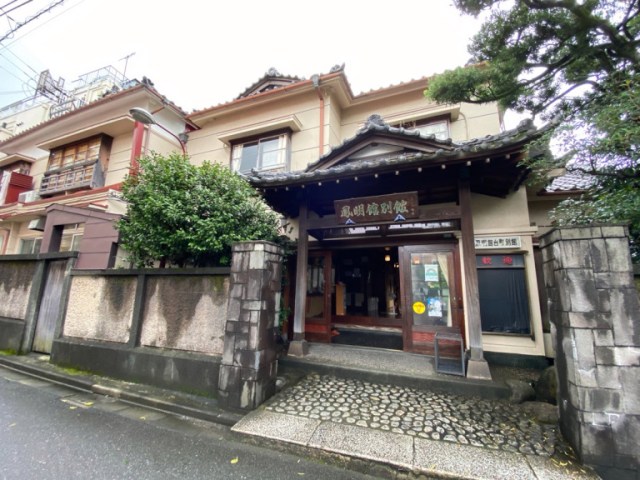
Learn what it feels like to be a novelist with an editor hounding you about your manuscript!
Have you ever wondered what it’s like to be a novelist? To have a strict deadline that you have to make, even though it’s oh so hard to stay on task? To have an editor constantly calling you and visiting to see how your project is going or if you’re finished with the manuscript yet?
Well, if you’ve ever wondered, you can have the whole experience at Homeikan, an old Japanese ryokan inn that’s offering a special one-night program called the Bungo Kanzume Plan, which roughly translates to “Literary Retreat Plan”. Our Japanese-language reporter Chie Nomura thought it sounded fun, so she booked a stay to see what it’s all about.
Homeikan was built more than 100 years ago and is actually a registered Tangible Cultural Property. The inn, which was originally a lodging house, has three buildings in Tokyo’s Hongo Sanchome neighborhood: a main building and two annexes.
They host the Bungo Kanzume Plan at the Morikawa Annex. It’s a program designed to emulate the life of a writer or literary master who in olden days needed to isolate themselves in order to finish their manuscript. This sounded like a great plan for Chie, who had some work that needed to get done. Would she be able to knock it all out?
The Morikawa Annex is just five minutes walking from Todai-Mae Station on the Tokyo Metro Namboku Line. In fact, it’s just around the corner from the illustrious University of Tokyo. However, Chie thought she was going to the main building, and ended up walking from Hongo Sanchome Station on the Marunouchi Line, which took about 13 minutes. It was a little bit of a hilly walk, but she was able to see the main building and the Daimachi Annex on the way, so she didn’t mind at all.
The Morikawa Annex has a very old-school feel to it, and Chie felt certain that many authors came to stay here in days gone by. The interior entrance hall is huge, and very cool. She couldn’t get enough of the atmosphere.
One of the shoe cubbies bore a sign for “Chie Nomura-sensei”. Chie felt sheepishly pleased, since “sensei” is used to honor novel authors. “I guess I am a sensei today!” she thought, blushing. After taking off her shoes and donning a pair of indoor slippers, she was promptly showed to her room by the staff, who, in this plan, refer to themselves as “the Editing Department”, in keeping with the theme.
▼ Even the hallways feel very historic and refined.
Chie’s room was at the very back of the inn, and was named “Haruna”. Here, too, was a tag with “Chie Nomura-sensei” on it. It felt a little like she was a celebrity entering her dressing room, but she kind of liked it.
Entering he room, it was just as as classic and historic-looking as she expected, and pretty spacious too!
It was a 12-tatami mat room, which is quite large. Even though the futon was already laid out, the room felt huge, maybe even too big for just one person, so Chie worried that she might feel a little lonely here. But when “Editor Ito” explained the way the program works, she felt a little relieved.
Apparently, you can hire an “editing team” to help you get your work done, and you can tell them how involved you want them to be. You can also book a number of optional services to have them keep you on track, like holding the key to the safe for you–so you can lock your phone in there–, as well as have the full experience of being a struggling author by hiring actors to play debt collectors or to pretend that your spouse and your secret lover run into each other.
After Chie selected her options and Editor Ito left, she set about getting to work. There was a nice desk in the room, but since there was also a beautiful old Japanese-style writing table she decided to use that. But as she was setting up her workstation, she realized a major problem…
The outlets were too far away!
This wouldn’t have been an issue for writers of yore, but for Chie, a child of the modern age, electricity is a must! Then she decided to try connecting to the Wi-Fi, but that didn’t go very well either. A quick SOS to the Editing Department solved both of those issues, however. “Editor Suzuki” immediately brought her two extension cords and a Wi-Fi router! They really left nothing to be desired.
Unfortunately, even with two extension cords she didn’t have enough length to reach the opposite end of the room, so she had to move the writing desk closer to the futon. But no matter! With her phone charging and her laptop plugged in, Chie was ready to get to work!
Her goal for her stay: writing a SoraNews24 article and a blog update. Being in isolation did seem to help her work progress much faster, but the biggest enemy was the constant call of the World Wide Web. Without even realizing it, she often ended up scrolling on Twitter or checking her e-mail.
Suddenly!
Suddenly, her room’s rotary telephone began to ring in a super old-school 19th century style. It was the progress check-in! After receiving a scolding about wasting time browsing the web, Chie remembered she needed to go out and investigate the inn itself for her article, and so left her room to explore.
Chie’s a fan of retro things, so she couldn’t get enough of the architecture and interior design. The building has four floors, and a surprising number of rooms (Chie’s was on the second floor).
▼ A break room
Every now and then she would spot signs that say things like, “How is your work coming along?”, so eventually she felt compelled to return to her room and get back to writing.
It was about 6:30 p.m. when she finished her tour of the inn, which was about the time she had requested a watch guard. She took a peek out the window to see if they were there, and…there they were!
▼ “Are you trying to escape from your window?”
The Editing Department was really committed to making Chie get her work done! As Editor Ito kept close watch on our reporter with a pair of binoculars, Editor Suzuki held up signs asking about her progress.
▼ “Are you done with your manuscript yet?”
Chie couldn’t help but smile as she saw them. Feeling comforted, she sat down and got back to work. Amazingly, she stayed on task until it was time for refreshments, though her attention did wander as she wondered what she would be getting for dinner.
Dinner was katsudon (pork cutlet bowl)! Chie’s favorite food, what she would eat as her last meal if she knew the world was going to end. It also came with a nutritional drink and a bag of candy. Chie appreciated what a good balance it was: a hearty dinner, an energizing drink, and a sweet snack for later. After dinner, she got back to work.
At about 8:30, she decided she wanted an early bath. The women’s bath was the “Roman bath,” and Chie loved it, with its tile flooring and walls painted to look like Rome. She had the bath all to herself, and enjoyed a long soak in the nice, hot water.
After the bath, Chie borrowed a hair dryer and returned to her room to dry her hair. Despite being alone, she felt oddly excited to be in a hotel room at night. It was the same feeling you might get when traveling with friends, especially on a school trip. But she still had work to do, so she sat down at her computer plugged away.
A little after midnight, she finally finished an article, so she rewarded herself with a beer and went to bed.
Ring ring ring ring!
Chie woke to the sound of the old-school telephone again. It was her 7 a.m. wake-up call. She answered the phone half asleep and promptly went back to her futon after hanging up. A little after 8 the phone woke her up again, and the Editing Team told her that they’d brought her breakfast, and she hadn’t even realized. Since it had been sitting outside her door for an hour, they brought her a new tray that was absolutely delightful!
▼ Definitely a ryokan-style breakfast!
After breakfast, Chie began to pack up to go home. She’d hoped to get a little more work done in the morning, but she’d stayed up late and overslept, so she didn’t have time. “It’s okay!” she told herself. “I worked pretty hard yesterday!”
Check-out was 10 a.m., and lots of other sensei were checking out at the same time, so the front desk was quite busy. The Editorial Department forgot to ask her one final time about her progress, which was a little disappointing, but Chie couldn’t blame them too much.
In any case, Chie successfully finished the Bungo Kanzume Plan! To be honest, she wasn’t really that productive, but she had a lot of fun staying in a really old, well-established inn and experiencing the life of a writer. More fun, anyway, than our other Japanese-language reporter Ikuna had when she trapped herself in a hotel for five days to get work done. If you want to try staying in an old Japanese building in Tokyo, definitely check it out!
Cost of the Experience
One night’s stay: 8,000 yen
Progress call: Free
Writing desk: 2,000 yen
Personal editorial team: 3,000 yen
Outside watch guard: 1,000 yen
Breakfast: 1,000 yen
Dinner: 1,000 yen
Total: 16,200 yen (US$152.30)
Ryokan Information
Homeikan Morikawa Annex / 鳳明館 森川別館
Tokyo-to Bunkyo-ku Hongo 6-23-5
東京都文京区本郷6-23-5
Bungo Kanzume (Literary Retreat) Plan website
Honmeikan Website
Photos © SoraNews24
● Want to hear about SoraNews24’s latest articles as soon as they’re published? Follow us on Facebook and Twitter!
[ Read in Japanese ]

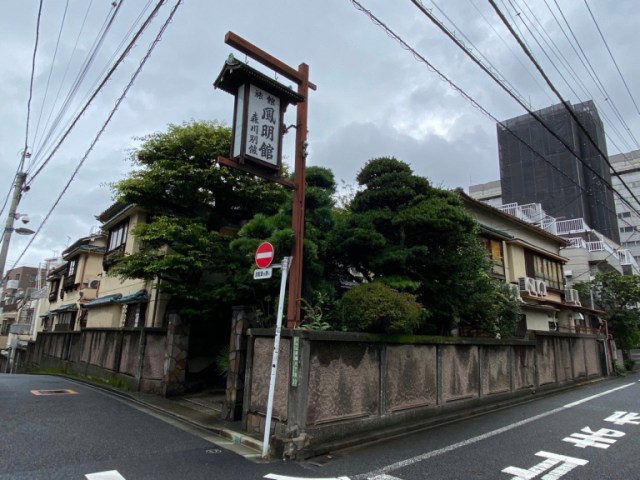
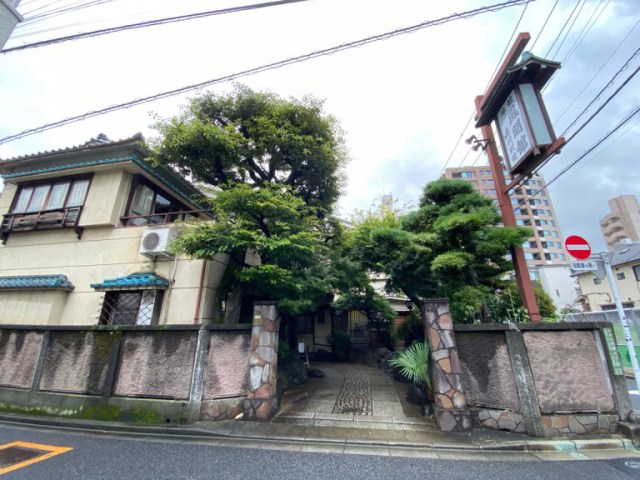
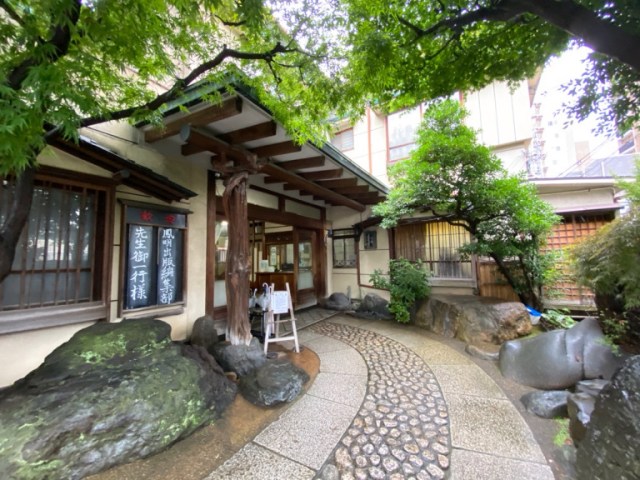
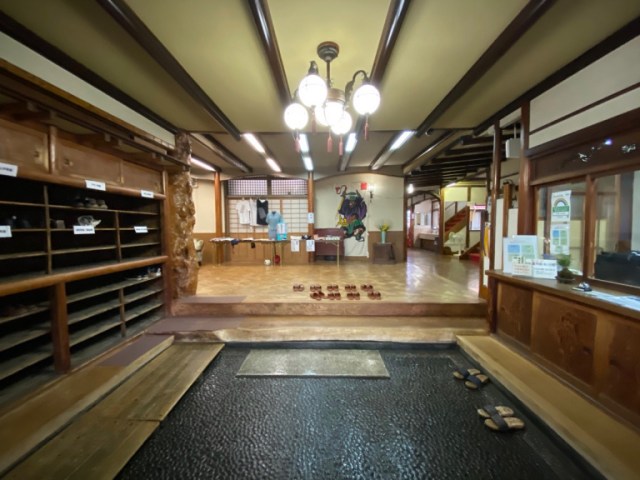
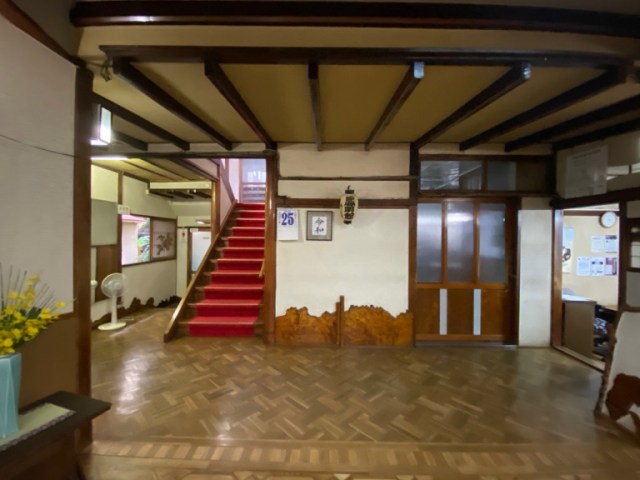
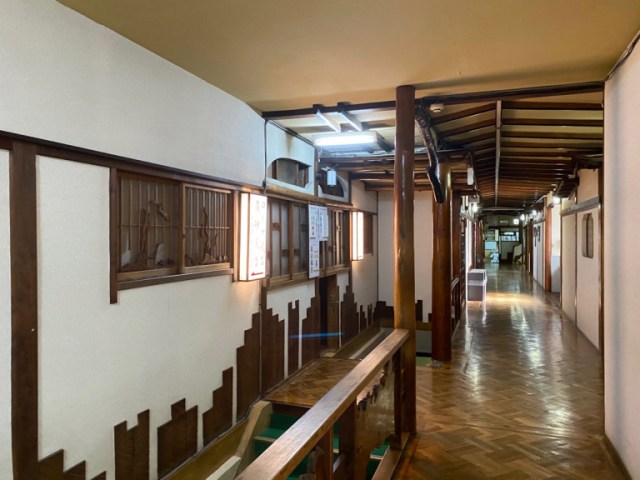
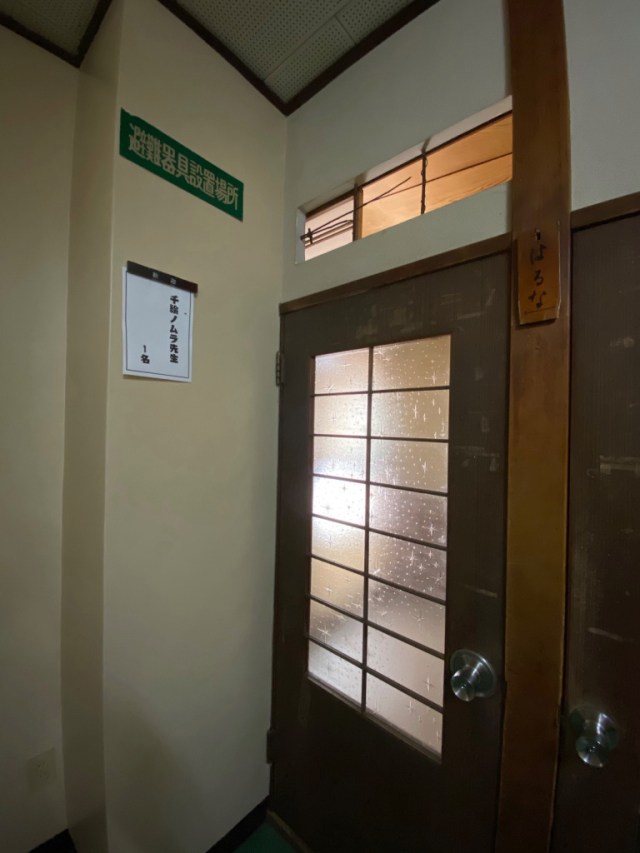
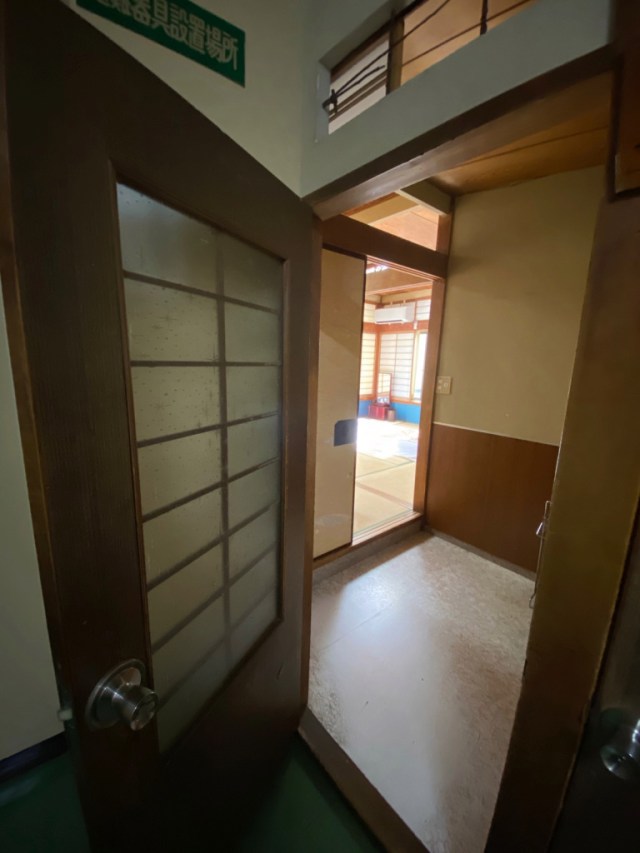
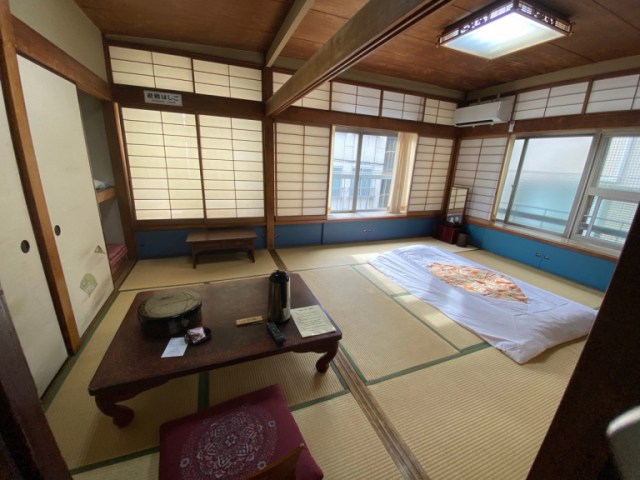
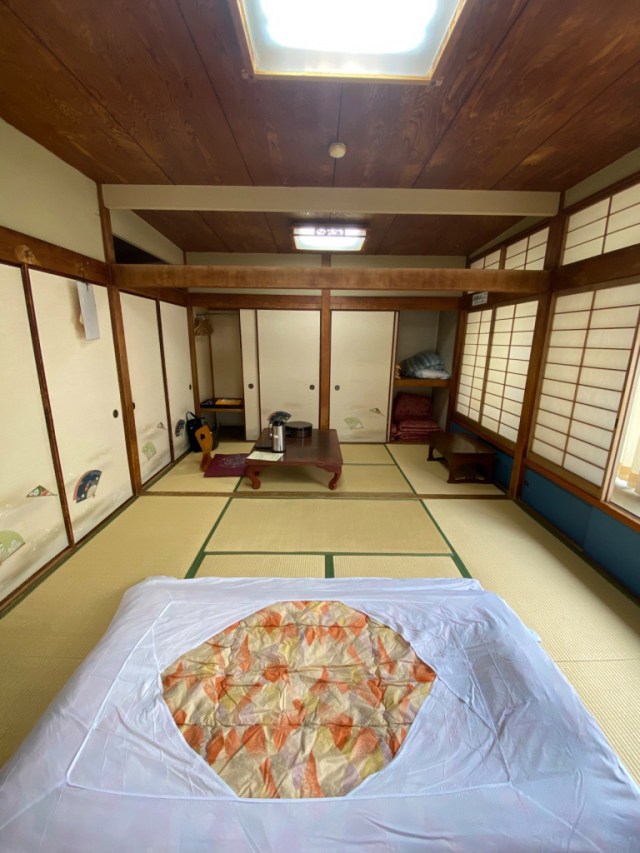
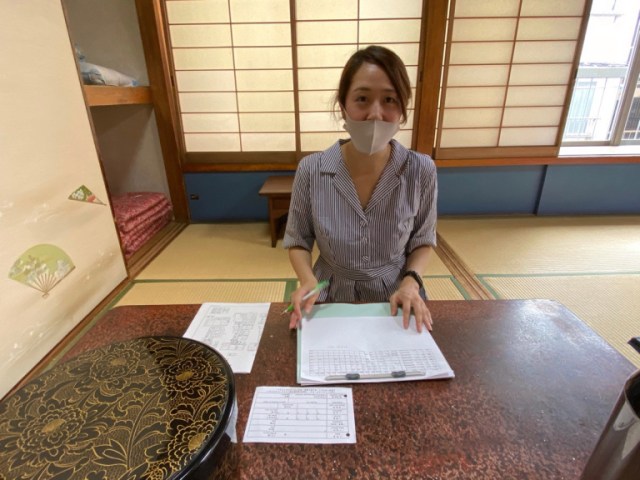
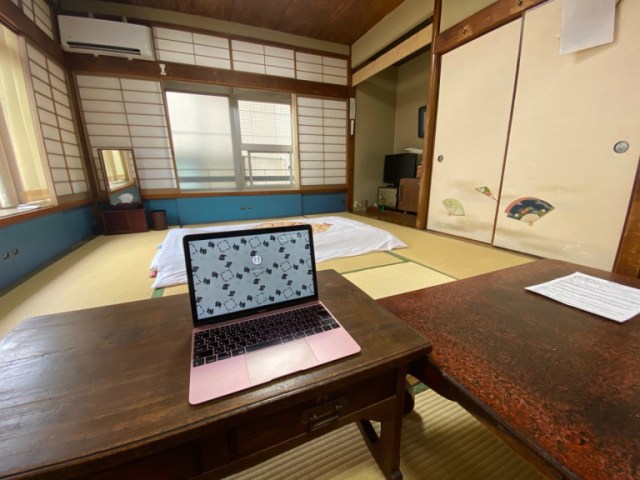
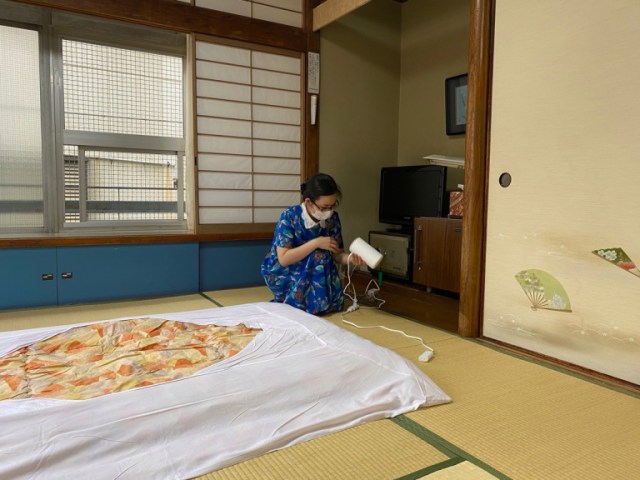
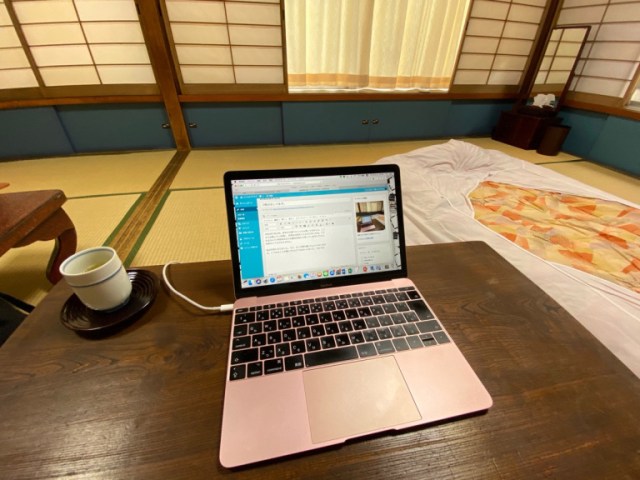
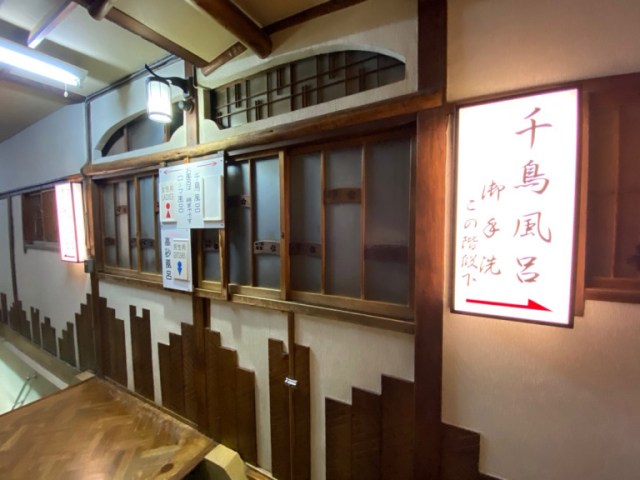
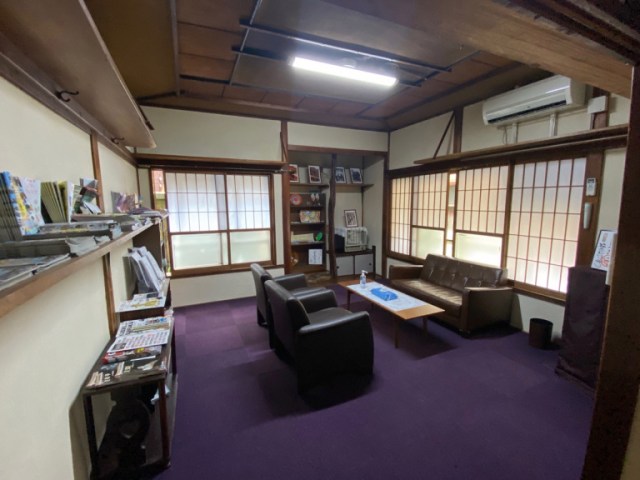
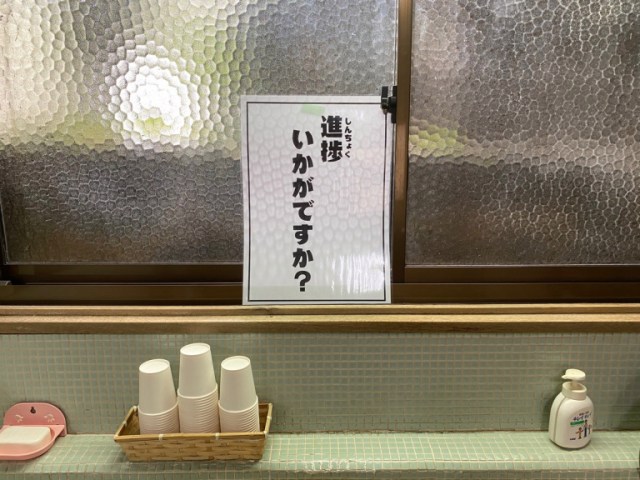
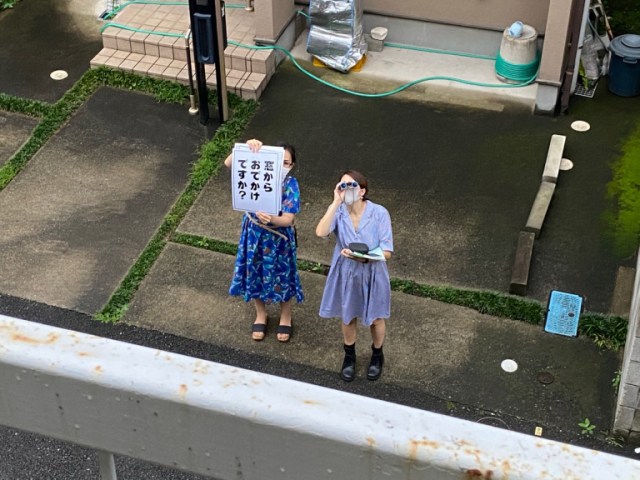
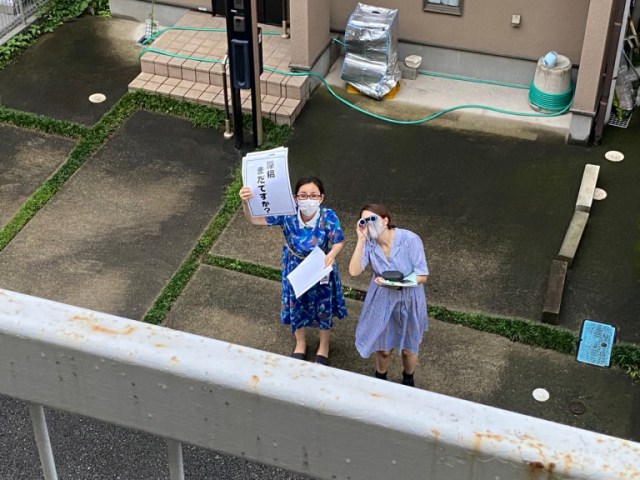
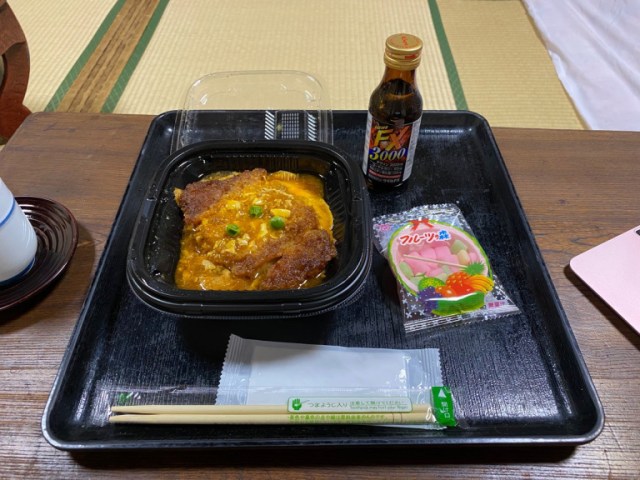
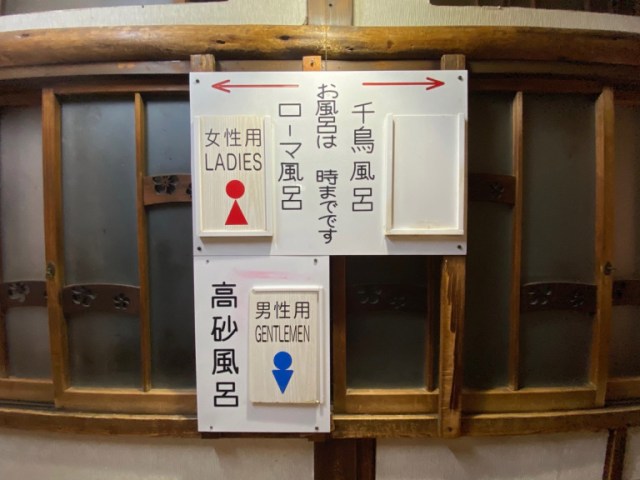
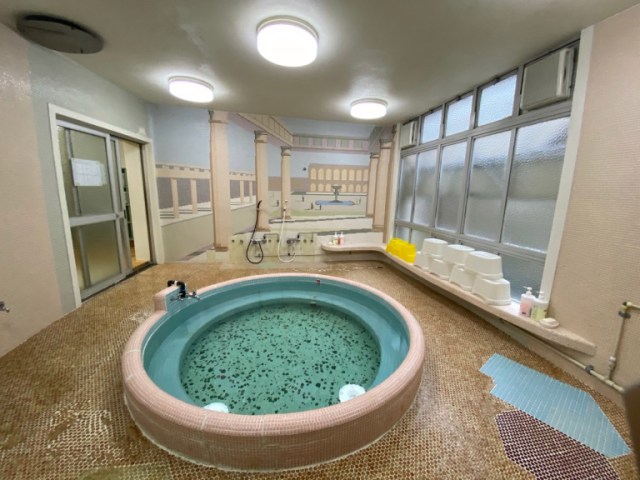
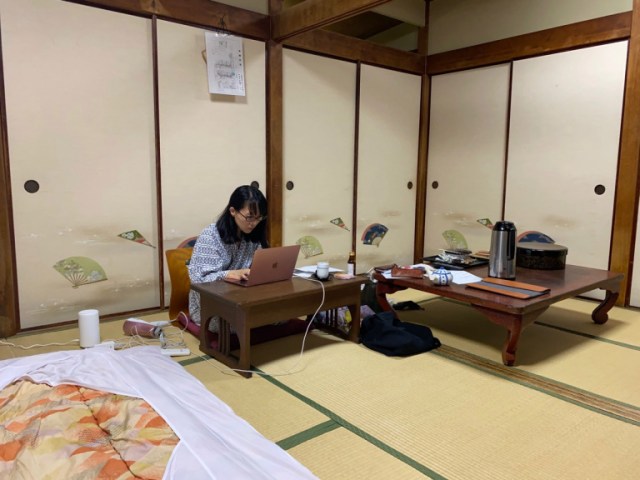
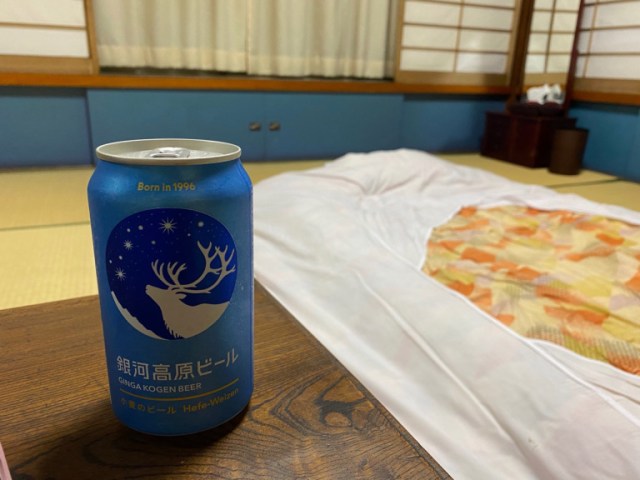
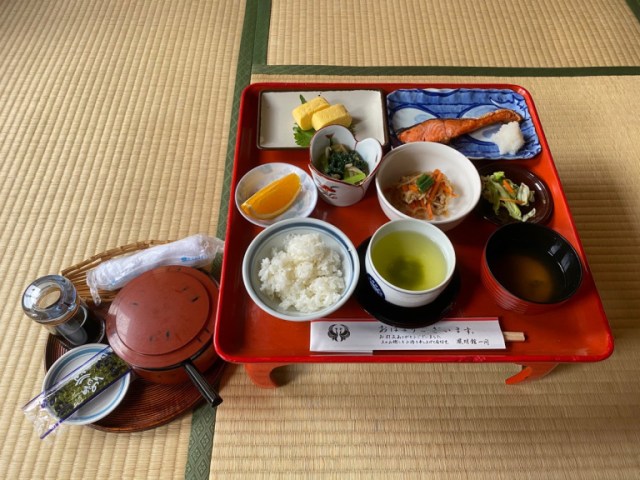
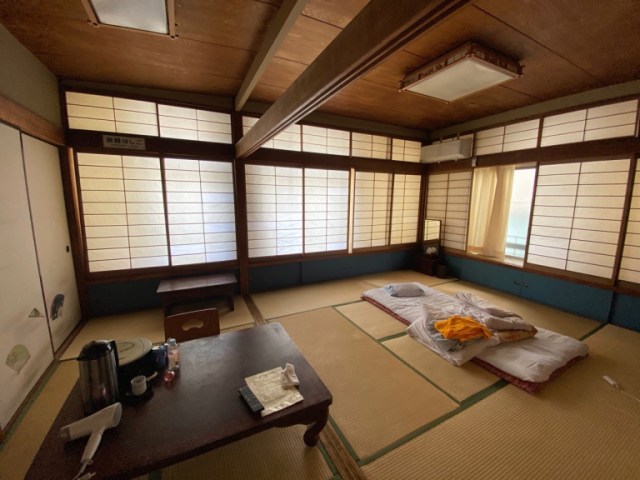
 Do Tokyo’s Reversible Destiny Lofts really hold the power to reverse your destiny?
Do Tokyo’s Reversible Destiny Lofts really hold the power to reverse your destiny? How to donate your hair for wigs for those in need in Japan
How to donate your hair for wigs for those in need in Japan 200,000 yen-per-night Airbnb is the successor to Tokyo’s famous Nakagin capsule apartments【Pics】
200,000 yen-per-night Airbnb is the successor to Tokyo’s famous Nakagin capsule apartments【Pics】 We make one of Japan’s best breakfast treats: Himeji almond toast【SoraKitchen】
We make one of Japan’s best breakfast treats: Himeji almond toast【SoraKitchen】 The ultimate in water recycling: we try taking a bath in our dehumidifier water
The ultimate in water recycling: we try taking a bath in our dehumidifier water McDonald’s new Happy Meals offer up cute and practical Sanrio lifestyle goods
McDonald’s new Happy Meals offer up cute and practical Sanrio lifestyle goods Studio Ghibli glasses cases let anime characters keep an eye on your spectacles
Studio Ghibli glasses cases let anime characters keep an eye on your spectacles Studio Ghibli releases new action figures featuring Nausicaä of the Valley of the Wind characters
Studio Ghibli releases new action figures featuring Nausicaä of the Valley of the Wind characters All-you-can-drink Starbucks and amazing views part of Tokyo’s new 170 meter-high sky lounge
All-you-can-drink Starbucks and amazing views part of Tokyo’s new 170 meter-high sky lounge Super Nintendo World expansion gets delayed for several months at Universal Studios Japan
Super Nintendo World expansion gets delayed for several months at Universal Studios Japan Beautiful Sailor Moon manhole cover coasters being given out for free by Tokyo tourist center
Beautiful Sailor Moon manhole cover coasters being given out for free by Tokyo tourist center McDonald’s Japan releases a pancake pie for new retro kissaten coffeeshop series
McDonald’s Japan releases a pancake pie for new retro kissaten coffeeshop series Kyoto’s 100 Demons yokai monster parade returns!
Kyoto’s 100 Demons yokai monster parade returns! More foreign tourists than ever before in history visited Japan last month
More foreign tourists than ever before in history visited Japan last month The oldest tunnel in Japan is believed to be haunted, and strange things happen when we go there
The oldest tunnel in Japan is believed to be haunted, and strange things happen when we go there Disney princesses get official manga makeovers for Manga Princess Cafe opening in Tokyo
Disney princesses get official manga makeovers for Manga Princess Cafe opening in Tokyo Starbucks reopens at Shibuya Scramble Crossing with new look and design concept
Starbucks reopens at Shibuya Scramble Crossing with new look and design concept Beautiful new Final Fantasy T-shirt collection on the way from Uniqlo【Photos】
Beautiful new Final Fantasy T-shirt collection on the way from Uniqlo【Photos】 Is the new Shinkansen Train Desk ticket worth it?
Is the new Shinkansen Train Desk ticket worth it? Foreign English teachers in Japan pick their favorite Japanese-language phrases【Survey】
Foreign English teachers in Japan pick their favorite Japanese-language phrases【Survey】 Japanese convenience store packs a whole bento into an onigiri rice ball
Japanese convenience store packs a whole bento into an onigiri rice ball We try out “Chan Ramen”, an underground type of ramen popular in the ramen community
We try out “Chan Ramen”, an underground type of ramen popular in the ramen community Studio Ghibli releases Kiki’s Delivery Service chocolate cake pouches in Japan
Studio Ghibli releases Kiki’s Delivery Service chocolate cake pouches in Japan Japan’s bone-breaking and record-breaking roller coaster is permanently shutting down
Japan’s bone-breaking and record-breaking roller coaster is permanently shutting down New definition of “Japanese whiskey” goes into effect to prevent fakes from fooling overseas buyers
New definition of “Japanese whiskey” goes into effect to prevent fakes from fooling overseas buyers Our Japanese reporter visits Costco in the U.S., finds super American and very Japanese things
Our Japanese reporter visits Costco in the U.S., finds super American and very Japanese things Studio Ghibli unveils Mother’s Day gift set that captures the love in My Neighbour Totoro
Studio Ghibli unveils Mother’s Day gift set that captures the love in My Neighbour Totoro Foreign passenger shoves conductor on one of the last full runs for Japan’s Thunderbird train
Foreign passenger shoves conductor on one of the last full runs for Japan’s Thunderbird train Domino’s Japan now sells…pizza ears?
Domino’s Japan now sells…pizza ears? New Japanese KitKat flavour stars Sanrio characters, including Hello Kitty
New Japanese KitKat flavour stars Sanrio characters, including Hello Kitty Kyoto creates new for-tourist buses to address overtourism with higher prices, faster rides
Kyoto creates new for-tourist buses to address overtourism with higher prices, faster rides Sales of Japan’s most convenient train ticket/shopping payment cards suspended indefinitely
Sales of Japan’s most convenient train ticket/shopping payment cards suspended indefinitely Sold-out Studio Ghibli desktop humidifiers are back so Totoro can help you through the dry season
Sold-out Studio Ghibli desktop humidifiers are back so Totoro can help you through the dry season Japanese government to make first change to romanization spelling rules since the 1950s
Japanese government to make first change to romanization spelling rules since the 1950s Ghibli founders Toshio Suzuki and Hayao Miyazaki contribute to Japanese whisky Totoro label design
Ghibli founders Toshio Suzuki and Hayao Miyazaki contribute to Japanese whisky Totoro label design Doraemon found buried at sea as scene from 1993 anime becomes real life【Photos】
Doraemon found buried at sea as scene from 1993 anime becomes real life【Photos】 Tokyo’s most famous Starbucks is closed
Tokyo’s most famous Starbucks is closed One Piece characters’ nationalities revealed, but fans have mixed opinions
One Piece characters’ nationalities revealed, but fans have mixed opinions We asked a Uniqlo employee what four things we should buy and their suggestions didn’t disappoint
We asked a Uniqlo employee what four things we should buy and their suggestions didn’t disappoint Princesses, fruits, and blacksmiths: Study reveals the 30 most unusual family names in Japan
Princesses, fruits, and blacksmiths: Study reveals the 30 most unusual family names in Japan Ginza hotel serves up one of the best breakfasts in Tokyo
Ginza hotel serves up one of the best breakfasts in Tokyo Rakuten Travel reveals the top 5 best-rated, off-the-beaten-track Japanese ryokan inns
Rakuten Travel reveals the top 5 best-rated, off-the-beaten-track Japanese ryokan inns Our reporter orders food from Uber Eats, falls in love, learns that fate works in mysterious ways
Our reporter orders food from Uber Eats, falls in love, learns that fate works in mysterious ways We try Häagen-Dazs’ special edition Forêt Noire ice cream found only in convenience stores
We try Häagen-Dazs’ special edition Forêt Noire ice cream found only in convenience stores Comparing Starbucks lucky bags in Japan proves some bundles are better than others
Comparing Starbucks lucky bags in Japan proves some bundles are better than others Survey reveals the most popular time to slip into a yukata at a traditional Japanese inn
Survey reveals the most popular time to slip into a yukata at a traditional Japanese inn What it’s like to spend the night in a Pokémon hotel room
What it’s like to spend the night in a Pokémon hotel room Hilton Japan apologizes for “disrespectful” ad disparaging traditional Japanese inns
Hilton Japan apologizes for “disrespectful” ad disparaging traditional Japanese inns Japanese worker’s job threatened for drinking non-alcoholic beer during break
Japanese worker’s job threatened for drinking non-alcoholic beer during break Oh, it turns out manga creator Rumiko Takahashi’s schedule is EVEN CRAZIER than we thought!
Oh, it turns out manga creator Rumiko Takahashi’s schedule is EVEN CRAZIER than we thought! New Tokyo meditation studio will teach you to “be in the moment” in relaxing 30-minute sessions
New Tokyo meditation studio will teach you to “be in the moment” in relaxing 30-minute sessions We book a night in a bookshelf at Book and Bed in Shinjuku
We book a night in a bookshelf at Book and Bed in Shinjuku We ventured into a hidden gem of a Chinese Internet cafe in downtown Tokyo【Pics】
We ventured into a hidden gem of a Chinese Internet cafe in downtown Tokyo【Pics】 Immersive Museum offers impressive impressionist fun this summer in Tokyo
Immersive Museum offers impressive impressionist fun this summer in Tokyo We spent a night in a Tokyo hotel staffed by robots 【Photos】
We spent a night in a Tokyo hotel staffed by robots 【Photos】 Puyo Puyo Manju return after 21 years…and our Puyo Puyo fan reporter achieves a childhood dream
Puyo Puyo Manju return after 21 years…and our Puyo Puyo fan reporter achieves a childhood dream
Leave a Reply